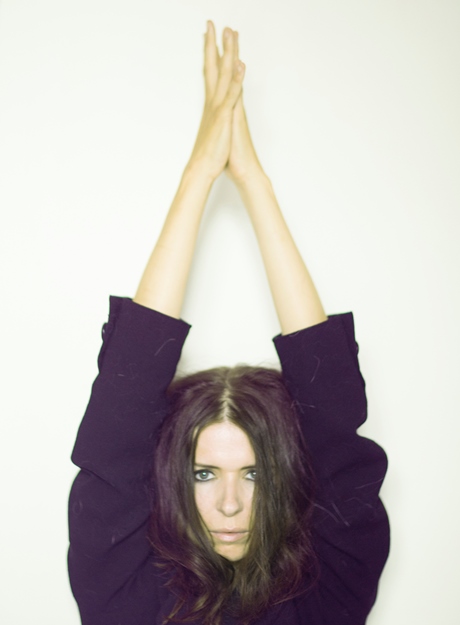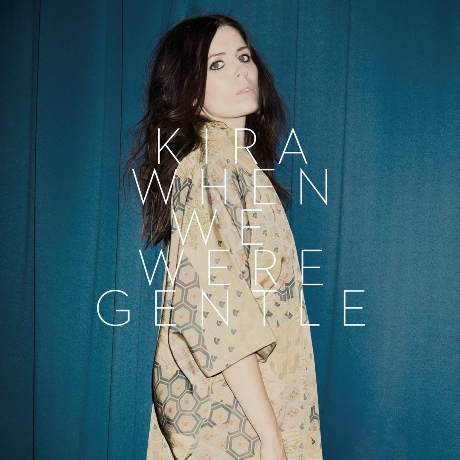Zeit der Unschuld. Die dänische Sängerin Kira Skov im Klangverführer-Interview
Seitdem Rosenhändler, Pralinenproduzenten und die Hersteller von Kitschartikeln aller Couleur, ob Grußkarte oder Herzluftballon, ihn auch hierzulande für sich instrumentalisiert haben, wird er weitestgehend gehasst: der Valentinstag. Wahre Liebe, so mosert der echte Romantiker, braucht keinen verordneten Feiertag. So weit, so richtig. Trotzdem möchte ich Sie heute bitten, ihre neuerworbenen Jahresplaner für 2014 zur Hand zu nehmen und sich den vierzehnten Februar dick anzustreichen. Nein, keine Angst, es steht kein Richard-Clayderman-Konzert an – und falls doch, haben wir damit nichts zu schaffen! Vielmehr erscheint an diesem Tag die neue Platte von Kira Skov, deren letztes Album Memories of Days Gone By – eine Hommage an Billie Holiday – mich seinerzeit veranlasste zu schreiben: „Kira möchte ich in Zukunft wieder mit eigenem Material hören“, endlich auch in Deutschland.
Und auch mein damaliger Wunsch wurde erhört. Das mit Hilfe von PJ Harvey-Produzent John Parish und Nick-Cave-Tonmeister Paul Corkett ausgenommene When We Were Gentle enthält ausschließlich Eigenkompositionen, die, bei allem Respekt vor den Interpretationen der Dänin, ihre wahre musikalische Stärke ausmachen. Ich hatte die Gelegenheit, mit Kira im Vorfeld der Albenveröffentlichung, die sie als Essenz ihrer musikalischen Reise betrachtet, über Glaube, Liebe, Hoffnung, Schuld und Sühne, kurz: die ewigmenschlichen und allzeitgültigen Themen, zu sprechen.
Klangverführer: Your last album Memories of Days Gone By was more or less a tribute to Billie Holiday. Your curent album sounds much more electronic and even a bit „triphoppy“ to me. Did you aim to go back to the roots, musically speaking? I have heard that it was no less a figure than English trip hop musician Tricky who originally discovered you …
Kira: It is true that I collaborated with Tricky and that he dicovered me and signed me to his label, but at this time I already had released 4 studio albums in Denmark playing rock’n’roll. I toured with Tricky as a guest in his band and performing all the vocal based tracks from his back catalog on his world tour in 2008. Since then I have released 5 albums in Denmark, the latest being When were were gentle. I think this album in many ways sums up the musical journey I have been on for the past many years. You will find shadows and references to both the Billie Holiday Jazz tribute album and my more cinematic and abstract journeys of my side project Persona, as well as a more singer/songwriter rooted tunes, related to my earlier works.
When We Were Gentle was produced by John Parish. Why did you chose him to produce the album and how did this collaboration actually come into existence?
I contacted John on Myspace in 2009 and I send him a bunch of songs over a long period of time and we communicated by mail for a while. He then produced an album for me on Iceland called Look up ahead in 2010. I found him to be a really great producer and we also became good friends. He is an outstanding musician and he has a really unique sense of sound. He also is very aware of how to concentrate an energy during a recording session and has lots of experience of the dynamics of recording and working with peoples energies. He is a very pleasant person to work with and I have endless amounts of respect for him as a musician and producer.
Another big name on When We Were Gentle is Paul Corkett, who has recorded and mixed such serious, „melancholy“ artists like The Cure or Nick Cave before. Do you think that the gloomy undertone of your album can be accredited to him?
It was John that introduced me to Paul. He is another lovely englishman and very good at what he does. I think everyone involved in the recordings of this album can be credited for having a share in the sound and atmosphere, but the gloomy undertones was already present in the demos of the songs I think.
Talking of „gloomy“ – for me, not only the music sounds quite dark, but also the lyrics seem to be very pessimistic: There are cold winds blowing and cold waters running … Is this how you experience the state of the world today?
I think there is a darkness in the songs, but for me making music is a way of creating some sort of balance in my life. I’m really quite an optimistic person, but I think I give my own personal darkness a room in the music, where it can exist without messing up my personal relations as they might have done when I was younger. It has turned out to work for me in this way.
Anyhow, there seems to be „Hope Fot Change“, which I regard as the key line in Idea Of Love. Could „gentleness“ as it is used in the album title be understood in the sense of „innocence“, as in The Age of Innocence?
Yes, the hope for change is present in the album and very much specifically in the song Idea of Llove. Gentleness could in this way be interpreted as innocence. It is also the wish to return to that moment in early love where there is no past or future. No preconceived ideas and notions. Where you a free of someone having a fixed idea of who you are and where you therefor can rest truly in the moment. That was when we were gentle and I’m trying to grasp the essence of this state.


